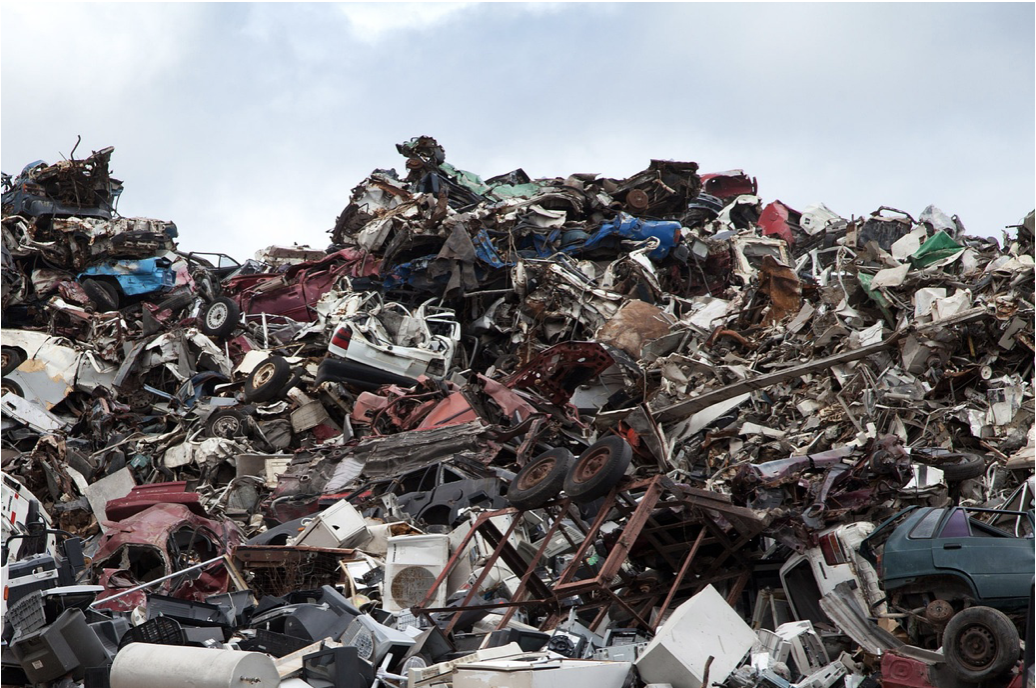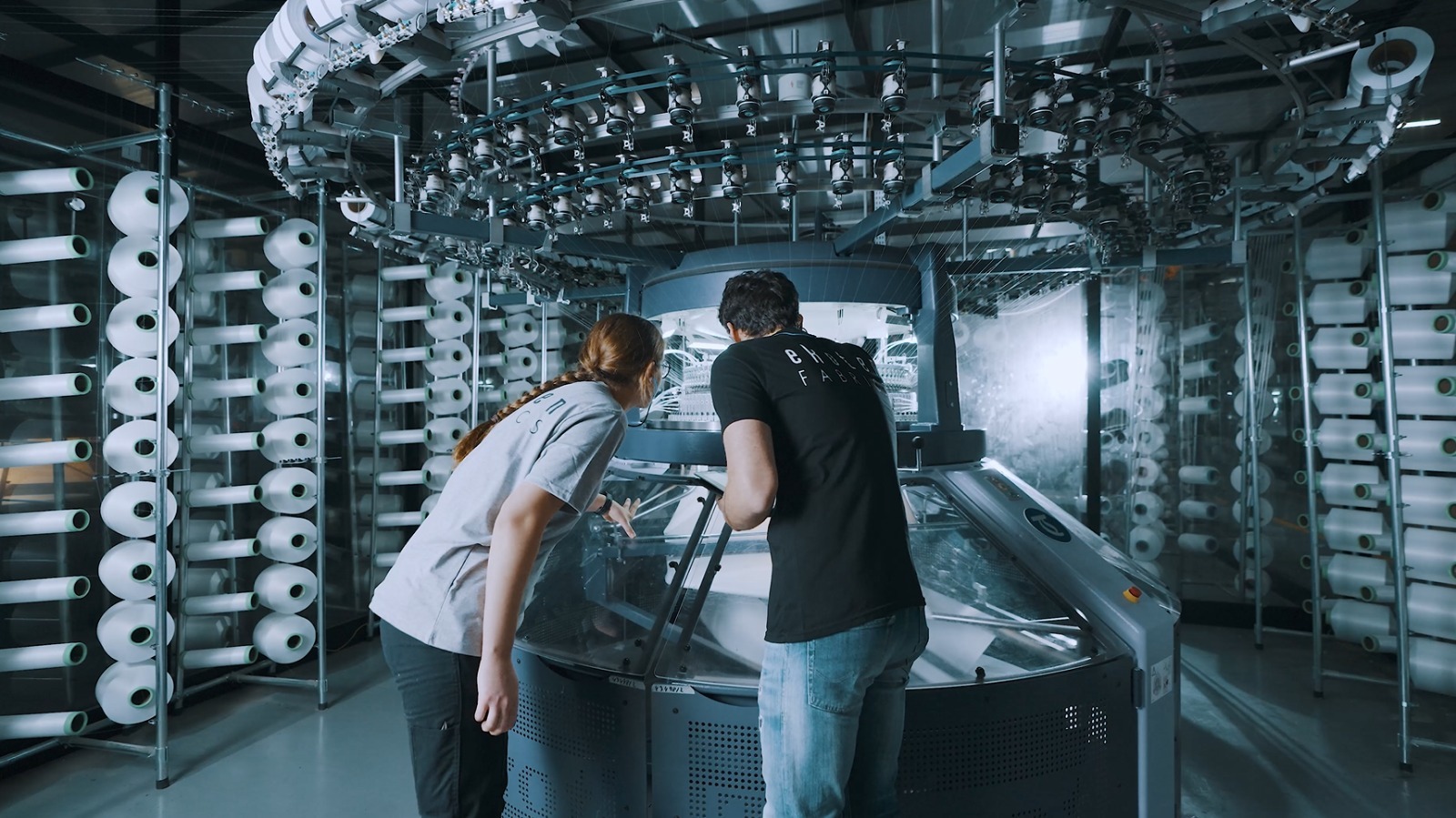World
Your Best Guide to Recycling Scrap Metal

We can all readily agree that in today’s world, where environmental consciousness is at its peak, recycling has become an essential and fundamental practice. But there is an area of recycling that often goes unnoticed, and it’s ironic because it’s an area that might well benefit most of us: scrap metal recycling. When you recycle scrap metal, this not only helps preserve our natural resources – but it also offers numerous environmental and economic advantages. In other words, it could also bring money to your wallet! So how do you get started, and what materials can you recycle? Here’s your best guide to recycling scrap metal – and its real benefits.
- Understand the importance of recycling your scrap metal
Recycling scrap metal reduces the need for extracting (mining for minerals) and refining virgin ores. When we reuse our existing metals, we can conserve valuable resources like copper, iron, aluminum, and steel, which are otherwise obtained through energy-intensive mining processes. When it comes to energy, it’s the same: recycling scrap metal requires significantly less energy compared to the production of new metals. The energy savings achieved through recycling can be as much as 90% for copper, 92% for aluminum, and 56% for steel, contributing to the reduction of greenhouse gases! Lastly, when we recycle our scrap metal, we prevent these materials from ending up in landfills, as confirmed by companies such as Langley Recycling. Metals can often take hundreds of years to decompose and may release harmful substances into the environment if not properly disposed of!
- Types of scrap metal
There are different types of scrap metal for recycling, and these include ferrous metals and non-ferrous metals. Ferrous metals include iron and steel, commonly found in household appliances, automobiles, and construction materials. Meanwhile, non-ferrous metals include aluminum, brass copper, stainless steel, and lead. Non-ferrous metals are widely used in wiring, electronics, plumbing, and various consumer products.
- Preparing scrap metal for recycling
Once you have found scrap metal, you need to prepare and sort it first. For instance, you must separate different types of metals to ensure maximum recycling efficiency. Use magnets to distinguish ferrous metals from non-ferrous metals, as ferrous metals are magnetic. Remove any non-metallic attachments, such as plastic, rubber, or wood, as these can affect the recycling process.
- Locating scrap metal recycling centers
You can search for local facilities and locate nearby scrap metal recycling centers. These facilities accept various types of scrap metal and may even offer pick-up services. On the other hand, you can also utilize online directories and recycling websites to find reputable recycling centers in your area.
The benefits of recycling scrap metal
Most of us already know that recycling scrap metal helps reduce the demand for mining, thereby minimizing the destruction of natural habitats and ecosystems. In addition, recycling saves energy that would otherwise be consumed during the extraction, transportation, and manufacturing processes involved in creating new metals. Scrap metal recycling creates employment opportunities and contributes to local economies. The recycling industry also generates revenue through the sale of recycled metal, providing economic benefits for individuals and communities.
Recycling scrap metal is a win-win situation for both the environment and the economy. By embracing this practice, we can conserve valuable resources, reduce energy consumption, and minimize waste. Together, let’s make a difference by promoting the responsible recycling of scrap metal and working towards a sustainable future.
World
Turkish Textile Giant Sun Textile Solution Proposal for Drought

While the World Health Organization (WHO) and the United Nations (UN) are seeking solutions to combat drought through various projects, Ekoten Textile, a subsidiary of Turkey’s textile giant Sun Textile, has developed a groundbreaking project in collaboration with a technology startup to minimize the intensive water consumption in the textile industry. This pioneering project, the first of its kind globally, will enable the recycling and reuse of up to 90% of the water used in textile production.
Drought is one of the most pressing issues facing the world today. According to WHO data, 40% of the global population is struggling with water scarcity. By 2030, up to 700 million people could be forced to migrate due to drought. The unconscious use of water in global production processes plays a significant role in the rapid depletion of clean water resources.
The textile industry is one of the sectors with the highest water consumption. In Turkey, while the food industry consumes 22% of the water used for industrial purposes, the textile sector follows closely with 18%. For instance, producing an average of 40 tons of products daily requires 2,500 tons of water, equivalent to the daily water consumption of approximately 10,000 people.
CLEAN WATER RESOURCES FOR HUNDREDS OF THOUSANDS OF PEOPLE EVERY DAY!
In textile production, where clean water resources are heavily consumed, the innovative success of the Turkish company stands out as a global best practice. This initiative will shape the future of the industry. The wastewater recycling project, developed through intensive R&D efforts, will ensure that over 90% of the required water is sourced from recycled supplies.
The reuse of wastewater in production will transform the fate of countries operating in the textile sector. By preventing the use of clean water resources for textile production, this project will free up clean water sources that can meet the daily needs of hundreds of thousands of people.
R&D ACTIVITIES IN 38 COUNTRIES WITH 380 PARTNERS!
Sun Textile places great emphasis on R&D activities, conducting research and development efforts with 380 partners across 38 countries. Sun Textile and its subsidiary Ekoten Textile export nearly 90% of their production, solidifying their identity as a leading exporter. The company ships products to numerous destinations worldwide, including European countries, the UK, and the US. Sun Textile, the leading ready-to-wear exporter in the Aegean Region, achieved a consolidated turnover of 250 million euros in the third quarter of 2024, continuing its active growth trajectory.
OFFERING CUSTOM DESIGNS TO CUSTOMERS
Sun Textile provides its own designed collections to leading brands in Europe and the UK. Ekoten Textile, its subsidiary, is among the most respected knitted fabric manufacturers in Turkey and Europe.
With a dedicated sales team for each major customer group and five design offices in three different countries, Sun Textile creates designs tailored to its customers’ needs. Its largest clients include the Inditex Group, H&M, Jimmy Key, Tesco, Kiabi, Marks & Spencer, and Next.
Sun Textile also extends its sustainability approach to social responsibility, notably for its high ratio of female employees. The company, which went public in 2022, is also listed in dividend indexes.
-

 Tech4 years ago
Tech4 years agoEffuel Reviews (2021) – Effuel ECO OBD2 Saves Fuel, and Reduce Gas Cost? Effuel Customer Reviews
-

 Tech6 years ago
Tech6 years agoBosch Power Tools India Launches ‘Cordless Matlab Bosch’ Campaign to Demonstrate the Power of Cordless
-

 Lifestyle6 years ago
Lifestyle6 years agoCatholic Cases App brings Church’s Moral Teachings to Androids and iPhones
-

 Lifestyle4 years ago
Lifestyle4 years agoEast Side Hype x Billionaire Boys Club. Hottest New Streetwear Releases in Utah.
-

 Tech6 years ago
Tech6 years agoCloud Buyers & Investors to Profit in the Future
-

 Lifestyle5 years ago
Lifestyle5 years agoThe Midas of Cosmetic Dermatology: Dr. Simon Ourian
-

 Health6 years ago
Health6 years agoCBDistillery Review: Is it a scam?
-

 Entertainment6 years ago
Entertainment6 years agoAvengers Endgame now Available on 123Movies for Download & Streaming for Free
